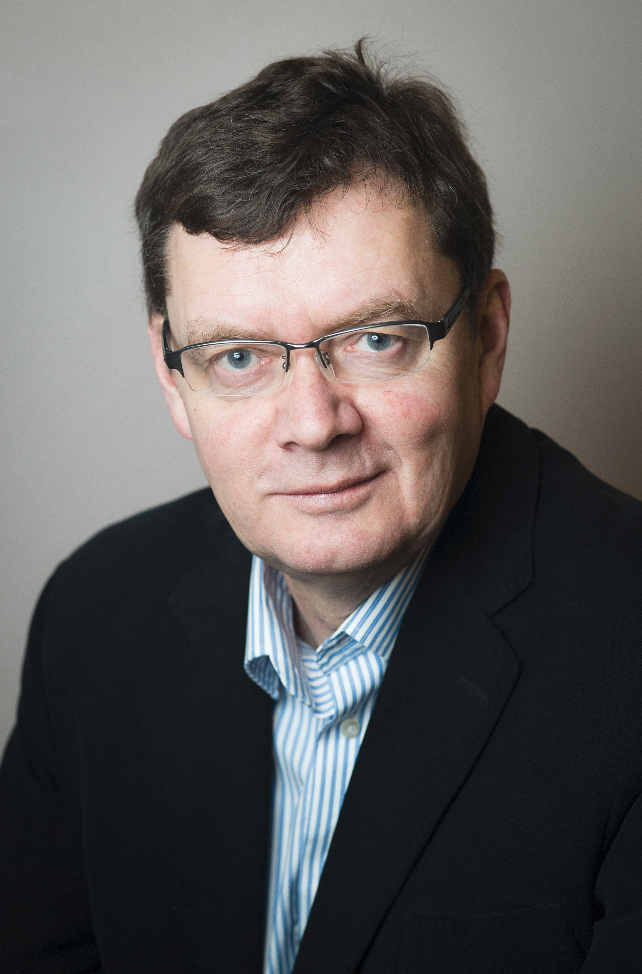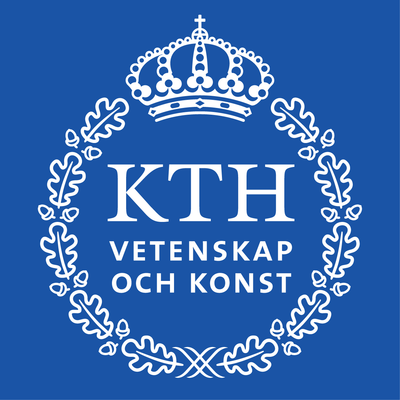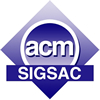Keynotes
Security and Trust in Current and Future Wireless Networks

University of Maryland, College Park, MD, USA
Abstract: We consider security and trust problems in the rapidly evolving and changing area of wireless networks. Several technologies including 5G, IoT, Software Defined Networks (SDN) and Network Function Virtualization (NFV) are rapidly changing the landscape. They lead at the same time to new challenges and to new opportunities for providing better security and trust. We describe some of these challenges and their implications for a diverse set of applications ranging from communication and sensor networks to networked cyber-physical systems. We next focus on trust schemes and their analysis in these current and future networks. We describe our results on various distributed consensus problems and the significance of trust schemes on the convergence and performance of such prototypical distributed inference and decision making algorithms. These include analysis using formal models, game theory and multi-metric hybrid optimization. We next describe the new opportunities provided by SDN, NFV, and network slicing, especially in the context of dynamic, adaptive on-demand network provisioning. We consider trust-based and trustless-based (i.e. blockchain) options, and the fundamental tradeoffs arising. We discuss applications to social networks, sensor networks, distributed control of CPS, autonomous vehicles. We close by describing future challenges and research directions.
Biography: John Baras is with the University of Maryland College Park, where he holds he endowed Lockheed Martin Chair in Systems Engineering. He received the Diploma in Electrical and Mechanical Engineering from the National Technical University of Athens, Greece, 1970; the M.S. and Ph.D. degrees in Applied Mathematics from Harvard University 1971, 1973. Since 1973, he has been a faculty member in the Electrical and Computer Engineering Department, and in the Applied Mathematics, Statistics and Scientific Computation Program, at the University of Maryland College Park. Since 2000, faculty member in the Fischell Department of Bioengineering. Since 2014, faculty member in the Mechanical Engineering Department. Founding Director of the Institute for Systems Research (ISR), 1985 to 1991. Since 1991, Founding Director of the Maryland Center for Hybrid Networks (HYNET). Since 2013, Guest Professor at the Royal Institute of Technology (KTH), Sweden. IEEE Life Fellow, SIAM Fellow, AAAS Fellow, NAI Fellow, IFAC Fellow, AIAA Associate Fellow, and a Foreign Member of the Royal Swedish Academy of Engineering Sciences (IVA). Received the 1980 George Axelby Prize from the IEEE Control Systems Society, the 2006 Leonard Abraham Prize from the IEEE Communications Society, the 2014 Tage Erlander Guest Professorship from the Swedish Research Council, and a three year (2014-2017) Senior Hans Fischer Fellowship from the Institute for Advanced Study of the Technical University of Munich, Germany. He was inducted in the A. J. Clark School of Engineering Innovation Hall of Fame (2016) of the University of Maryland and was awarded the 2017 IEEE Simon Ramo Medal, and the 2017 AACC Richard E. Bellman Control Heritage Award.
Dr. Baras has coauthored more than 850 technical papers in prestigious refereed journals and conferences, one book (Path Problems in Networks, 2010)), and co-edited three others. He has educated 85 doctoral students, 112 MS students and has mentored 50 postdoctoral fellows. His research interests include systems and control, optimization, communication networks, signal processing and understanding, robotics, computing systems, network security and trust, systems biology, healthcare management systems, model-based systems engineering. He has been awarded eighteen patents and has been honored with many awards as innovator and leader of economic development.
Status of 5G security

University of Helsinki, Finland
Abstract: Based on several years of research and study in 5G security the 3GPP started to write the first standard specification one year ago. Now the security specification for the first phase of 5G is almost finalized and it is a good time to look at what has been achieved. The first observation is that 5G security can be seen as an extended version of 4G security, which in turn is an extended version of 3G security. Many things have been changed but this is mainly because of non-security reasons. Cellular security features are embedded into radio and mobility management procedures, hence changes in these procedures require adaptations for security also. The second observation is that there are also purely security-motivated enhancements. Two examples are user identity protection against active attackers (IMSI catchers) and improved home operator control of security in roaming situations. The third observation is that many of the highly promoted properties of 5G, e.g. low latency and support for massive number of IoT devices, have been postponed to phase 2 in 3GPP. This means that the specification work for these properties is just starting. Introduction of 5G phase 2 features has many consequences in security and privacy. It is therefore expected that phase 2 security specification work will face many interesting challenges.
Biography: Valtteri Niemi is a Professor of Computer Science in University of Helsinki and leads the Secure Systems research group. Earlier he has been a Professor of Mathematics in two other Finnish universities: University of Vaasa during 1993-97 and University of Turku during 2012-2015. Between these two academic positions Niemi served for 15 years in various roles at Nokia Research Center and was nominated as a Nokia Fellow in 2009. At Nokia, Dr. Niemi worked for wireless security, including cryptological aspects and privacy-enhancing technologies. He participated 3GPP SA3 (security) standardization group from its beginning and during 2003-2009 he was the chairman of the group. He has published more than 80 scientific articles and he is a co-author of four books and more than 30 patent families.
Things, Threats, Trust: Tackling Security & Privacy Challenges in the Brave New IoT World

TU Darmstadt, Germany
Abstract: IoT devices are widely being adopted as new manufacturers of internet-connected devices are entering the market. Although IoT promises a brave new world, many devices are lacking proper security designs or have flawed implementations, making them vulnerable to various security and privacy threats. We are facing significant challenges specific to IoT, such as emerging large-scale IoT botnet attacks, abuse of voice-based virtual assistants (e.g., Amazon’s Alexa), or novel privacy threats caused by widespread adoption of wireless sensors, actuators and smart home appliances even in presence of properly encrypted communications.
Unfortunately, existing intrusion detection techniques for detecting compromised IoT devices seem ineffective given the massive scale of the IoT device population and enormous diversity of device hardware, operating systems, software frameworks and manufacturers involved.
In this talk, we will present our recent work on addressing various security and privacy challenges in the growing IoT landscape including industry collaborations. In particular, we focus on approaches for identifying IoT devices based on their inherent communication behavior and using these behavior patterns to automatically detect compromised IoT devices effectively.
Biography: Ahmad-Reza Sadeghi is a professor of Computer Science at TU Darmstadt, Germany where he heads the System Security Lab at the Cybersecurity and Privacy Research Center (CYSEC). Since 2012 he is the director of the Intel Collaborative Research Institute for Collaborative Autonomous & Resilient Systems (ICRI-CARS). For his influential research on Trusted Computing he received the renowned German “Karl Heinz Beckurts” award. This award honors excellent scientific achievements with high impact on industrial innovations in Germany. He is the author of more than 300 peer-reviewed scientific publications in the field of IT security and privacy and was, amongst others, Editor-In-Chief of the prestigious IEEE Security and Privacy Magazine. He is also on the advisory board of several large multinational IT-enterprises.

Important Dates
- Abstract submission: February 22, 2018 (11:59:59 PM EST) [Open until Paper Deadline]
- Paper submission: March 8, 2018 (11:59:59 PM EST) [Final Deadline, extended from March 1]
- Paper notification: April 9, 2018
- Paper camera-ready submission: May 10, 2018
- Replicability label application: May 10, 2018
-
Poster/demo proposal submission:
May 10, 2018 - Poster/demo notification: May 15, 2018
- Registration for authors (papers and posters/demos): May 17, 2018
- Early registration (to reserve spot in social events): June 3, 2018
- WiSec 2018: June 18 to June 20, 2018
Sponsored by
ACM WiSec 2018
11th ACM Conference on Security
and Privacy in Wireless and
Mobile Networks
Stockholm, Sweden
June 18 - 20, 2018









